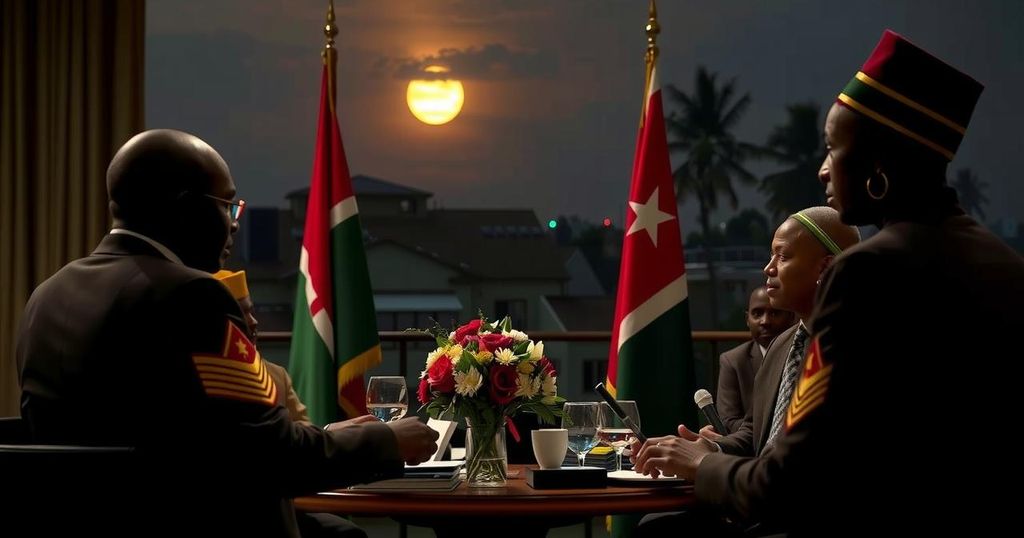South Sudan Holdout Groups Consent to Renew Peace Talks in Nairobi

South Sudan’s holdout groups have agreed to resume peace negotiations in Nairobi, following security concerns and dissatisfaction with the previous process. This development occurs after Kenyan President William Ruto’s discussions with South Sudanese leaders. The Tumaini Initiative aims to incorporate non-signatories into the peace framework, reflecting positive strides towards establishing lasting peace and stability in the region.
The non-signatory factions to the 2018 peace agreement in South Sudan have consented to reinitiate peace negotiations in Nairobi, addressing previous security apprehensions and grievances about the peace process. This pivotal decision came after Kenyan President William Ruto’s recent discussions with South Sudanese leadership, including President Salva Kiir and First Vice President Riek Machar, highlighting a commitment to sustained peace in the region. President Ruto emphasized the necessity for inclusive dialogue as critical to fostering lasting stability within the nation. These renewed peace talks form part of the Tumaini Initiative, which originated in May following President Kiir’s outreach to President Ruto for the facilitation of negotiations. The Intergovernmental Authority on Development (Igad) will play a significant role in the process, offering essential regional backing for a fresh dialogue aimed at incorporating still-holdout groups into an extension of the existing peace accords. With an enhanced focus on peace and stability, both South Sudan and its wider region can work towards economic recovery. Progress in discussions has been achieved, with the holding groups having tentatively agreed on six out of nine strategic protocols related to reconciliation, justice, power sharing, and state reconstruction. However, negotiations had previously encountered setbacks due to the withdrawal of the Juba delegation for consultations. The Tumaini Initiative’s framework seeks to build upon these agreements to lay down a concrete foundation for enduring peace. The coalition government in Juba recently extended its mandate by two years, postponing presidential elections initially set for this December due to inadequate preparations. Nevertheless, there has been a notable shift in sentiment among the holdout groups, many of whom have begun to engage proactively with the Kenyan-led mediation process. The discussions are deemed crucial in addressing the frequent violence attributed to some holdout factions, which has broader regional implications.
South Sudan, having emerged from a protracted civil conflict, continues to face challenges concerning peace and governance. After the signing of the 2018 peace agreement aimed at restoring stability, certain factions did not sign the agreement, raising concerns about the overall effectiveness of the peace process. The recent involvement of Kenyan leadership, particularly President William Ruto, illustrates regional efforts to mediate lasting solutions among South Sudan’s political actors. The Tumaini Initiative represents a strategic effort to incorporate these holdout groups into the peace framework to foster inclusive dialogue and ultimately promote sustainable stability in a post-conflict context.
The resumption of peace talks in Nairobi signifies a crucial step towards reconciling differences between South Sudan’s government and non-signatory groups, with an emphasis on inclusive dialogue as articulated by President Ruto. The collaborative efforts among regional stakeholders, particularly through the Tumaini Initiative and Igad’s renewed involvement, are essential for establishing a comprehensive peace agreement that addresses the grievances of all parties. With prior agreements already in place, the pathway to a durable peace and stability appears increasingly attainable, potentially paving the way for broader economic recovery in the region.
Original Source: www.theeastafrican.co.ke








